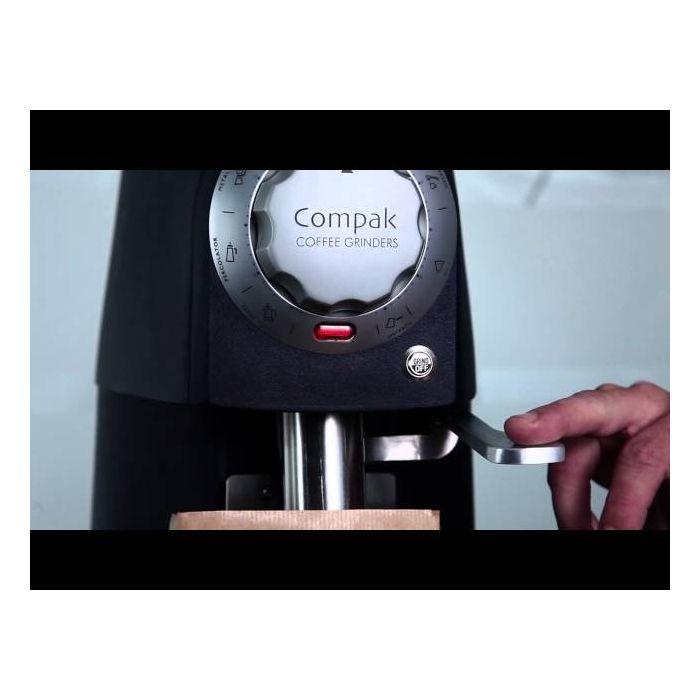Industrial Coffee Grinder Guide: Increase Efficiency and Top Quality
In the affordable landscape of coffee manufacturing, selecting the ideal commercial coffee grinder plays a critical role in improving both performance and product high quality. Comprehending the subtleties of various mill kinds and essential features-- such as adjustable work settings and robust construction-- can dramatically influence the final taste account of the coffee. The optimization of the grinding procedure, coupled with thorough maintenance, is vital for maintaining efficiency over time. As we discover these vital components, it becomes evident that the ramifications prolong past mere equipment option, affecting overall company success in means that necessitate closer examination.
Comprehending Grinder Kinds
When picking an industrial coffee mill, comprehending the numerous types available is critical for enhancing both flavor extraction and functional effectiveness. The 2 main kinds of grinders are blade mills and burr grinders.

Eventually, picking the best sort of grinder is important to keeping quality and performance in coffee manufacturing, making it necessary for businesses to invest in high-grade burr grinders for ideal outcomes.
Trick Features to Think About
Picking a commercial coffee grinder needs cautious factor to consider of numerous key functions that can dramatically affect both performance and the overall coffee experience. Among the key aspects to assess is the grinding system. Burr mills are usually preferred over blade grinders, as they provide a constant grind size, which is vital for optimum removal and taste.
Another vital feature is the grinder's capacity. Depending on the volume of coffee you need to process, choose a model that can handle your requirements without giving up rate or quality. Furthermore, think about the grind settings provided. A versatile grinder with multiple setups permits you to customize the work size to different brewing methods, boosting the coffee's taste account.
The building and construction product likewise contributes in toughness and maintenance. Stainless steel parts usually use durability and are easier to cleanse, which is necessary for preserving hygiene criteria. Finally, assess the mill's sound level, specifically in a hectic café or production atmosphere, where too much sound can be disruptive. Buying a grinder that stabilizes these features can substantially improve both functional effectiveness and the top quality of the coffee served.
Optimizing Grinding Refine
To accomplish the ideal results in coffee preparation, maximizing the grinding process is crucial. The grind size dramatically influences extraction, taste, and total quality of the brewed coffee. Various developing methods require certain work dimensions; for instance, espresso demands a great work, while French press demands a coarse texture. Understanding the connection in between work dimension and developing approach is the initial step in optimization.


Additionally, monitoring the grinding speed can maximize the procedure. Slower grinding frequently generates less heat, maintaining delicate flavors and fragrances. Alternatively, quicker grinding may create extreme warm, negatively affecting the coffee's high quality.
Maintenance and Care Tips
Correct upkeep and treatment of industrial coffee grinders are essential for try these out guaranteeing optimal efficiency and long life. Routine cleaning is the structure of upkeep; residue buildup can affect taste and grinding effectiveness. It is a good idea to clean up the grinder after each usage, cleaning down the exterior and getting rid of any kind of coffee grounds from the burrs.
Additionally, evaluate the grinding burrs for damage. Boring burrs can endanger grind uniformity, so they must be replaced as necessary. Industrial Coffee Grinder. Occasionally calibrating the mill is likewise important, as this maintains the wanted work size for numerous brewing approaches
Lubrication of moving components must be carried out according to the supplier's specs, as this reduces rubbing and prolongs the life of the tools. It is vital to use food-grade lubricating substances to guarantee safety and security and compliance with health laws.
Last but not least, keep the mill her explanation in a secure and completely dry atmosphere to stop rust and deterioration. By adhering to these maintenance and treatment suggestions, drivers can enhance the effectiveness of their commercial coffee mills while making sure high-quality output and expanded functional life.
Roi Evaluation
Reviewing the return on investment (ROI) for industrial coffee grinders is critical for businesses seeking to enhance their coffee manufacturing abilities. A comprehensive ROI evaluation aids establish the financial practicality of investing in top notch mills, permitting organizations to weigh the initial costs against prospective gains.
Assess the acquisition price of the mill, consisting of setup and any necessary alterations to existing facilities. High-performance mills commonly lead to lowered grinding time and raised throughput, which can considerably enhance performance.
Additionally, take into consideration the influence on item quality. Industrial Coffee Grinder. Superior mills yield an even more consistent grind dimension, which can enhance taste profiles and customer contentment, eventually driving sales. By raising the high quality of the last product, services can validate greater pricing, bring about enhanced profits
Conclusion
In recap, a commercial coffee mill plays a crucial duty in boosting both performance and item high quality within coffee production. Eventually, the tactical investment in a dependable grinder adds dramatically to boosted earnings and competition in the coffee market.
In the competitive landscape of coffee production, selecting the right commercial coffee mill plays an essential function in enhancing both efficiency and item top quality. The two read this post here primary kinds of mills are blade grinders and burr grinders. Within the burr grinder group, there are level burr mills and conical burr grinders, each with its benefits. Burr mills are typically preferred over blade grinders, as they provide a consistent grind dimension, which is important for ideal removal and taste.
In summary, an industrial coffee grinder plays an essential duty in enhancing both efficiency and product high quality within coffee production.
Comments on “Industrial Coffee Grinder: Advantages, Disadvantages, and Attributes to Consider”